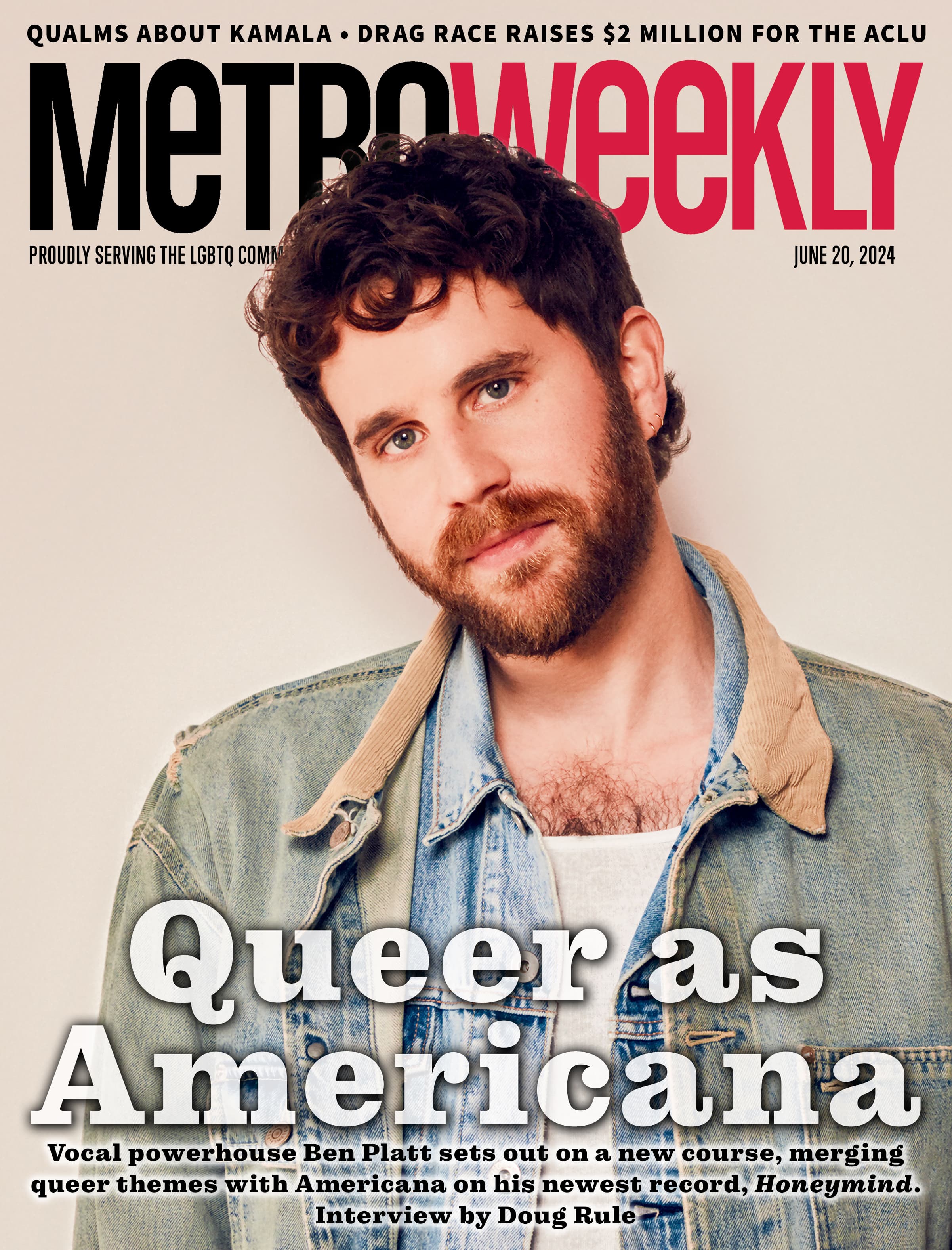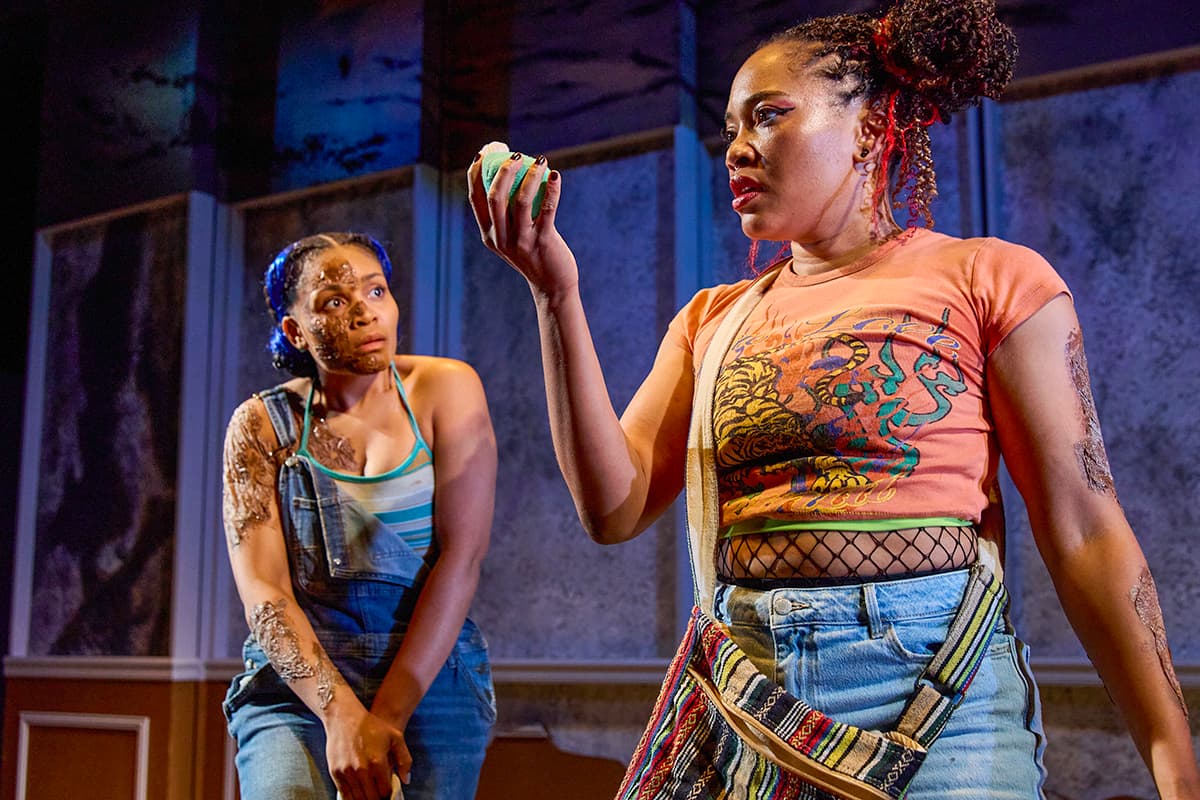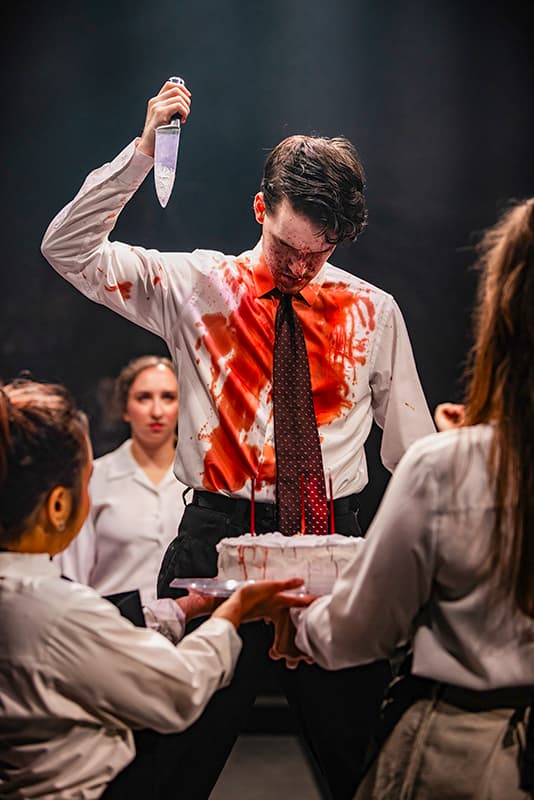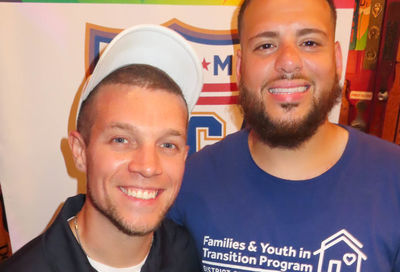‘Parade’ Review: Injustice in Georgia
A much-beloved nineties musical, "Parade," returns to Broadway in a stunning new production starring Ben Platt.

There’s never been a better time for a Broadway revival of Parade. Last year, the US International broadcasting outlet Voice of America reported that antisemitic incidents were up by 34% over 2020 and that crimes against the Jewish people were at an all-time high.
Even more chilling is that Neo nazis harassed ticket buyers outside of the Bernard B. Jacobs theater in February on its first night of previews. The next day, the show’s producers released a statement.
“If there is any remaining doubt out there about the urgency of telling this story in this moment in history, the vileness on display last night should put it to rest,” it read. “We stand by the valiant Broadway cast that brings this vital story to life each night.”
Based on a true story, Parade‘s story is not an easy one to tell nor comprehend. It’s even more difficult to imagine as a musical — especially when musicals conjure thoughts of cheery, up-tempo tunes, high-spirited dance, and happy endings.
None of that is happening in Parade. Nonetheless, it towers over American musical theater — and currently over Broadway — as one of the most beautifully heartfelt and gut-wrenching shows.
Ben Platt leads the large cast as Leo Frank, a Brooklyn-raised Jewish-American who, in 1913, took a job as the superintendent of a pencil factory in Atlanta. Shortly after relocating to the South, he met Lucille (Micaela Diamond), the woman who would become his wife — and ultimately his greatest advocate.
After 13-year-old Mary Phagan (Erin Rose Doyle) was found strangled and left for dead on the floor of the factory basement, Frank becomes the prime suspect. Historians now believe that he remained innocent and that they know who killed Phagan. Against the backdrop of the murder, racial tensions and underhanded politics are hard at work.
When Parade first opened on Broadway in 1998, it was a critical success. It was nominated for nine Tony awards and took home two: One for its book by Alfred Uhry (Driving Miss Daisy) and one for Jason Robert Brown’s score. Unfortunately, it failed to muster commercial interest and shuttered after only a few months. Since then, it has become a cult favorite among theater enthusiasts.
It’s hard to tell why audiences will flock or flee to a Broadway show, unless buzz is either hugely favorable or dangerously lethal. Generally, it has to do with the political and social climate of the moment.
Anticipation for the show grew after director Michael Arden carefully staged the work for six sold-out nights last fall as part of New York City Center’s Encore series. Producers took note and briskly transferred the show to Broadway. The day tickets went on sale in January, demand was so high that the Telecharge site crashed.
Platt, a 2017 Tony-winner for Dear Evan Hansen, delivers a fine performance, not unlike the nebbish, nervous, and confused Evan Hansen. At age 23 with just one other Broadway credit (The Cher Show), Diamond is also a force in both her vocal and acting skills. One does wonder, however, who coached the New Jersey native on her southern accent, as it tends to waver and is sometimes intelligible.

The character of Lucille should be a guide for how to write female characters. Too often, heterosexual women are overshadowed by either their heterosexual male partners, by the story, or by both.
Uhry may have taken some license, but his depiction of Lucille shows steely strength and boldness, especially at a time when women were painfully marginalized. After all, it was Lucille who encouraged Governor Slaton (Sean Allan Krill) to re-open her husband’s case after his death sentence.
Two memorable moments in the show include a plaintive ballad, “My Child Will Forgive Me” sung by Mrs. Phagan (Kelli Barrett), about the hopeful redemption her slain daughter will bestow upon her in the afterlife, and the Act Two opener, “A Rumblin’ and a Rollin,” sung by Slaton’s black house staff, Riley (Douglas Lyons) and Angela (Courtnee Carter).
The song cuts to the bone, as they describe the media hysteria over the lynching of Frank. “I can tell you this, as a matter of fact, that the local hotels wouldn’t be so packed, if a little black girl had gotten attacked. They’re comin’, they’re comin’ now, yessirree! ‘Cause a white man gonna get hung, you see.”
Brown’s flawless score infuses blues, gospel, ragtime, and traditional musical theater fare, all of which is sung to perfection by the dynamic cast. Dane Laffrey’s effective boxing ring set constantly reminds us of the battle between corruption and justice being fought by these characters.

Another powerful creative choice is Sven Ortel’s projection design. As stage characters are introduced, real-life photos of their counterparts appear against the wall. It’s a potent touch that grounds the story with the high stakes of life and death.
It’s a common practice for theaters to play a pre-recorded announcement before each show. As the house lights dim, guests are welcomed, reminded to turn off electronic devices, and are instructed to enjoy the show. At Parade, Senator Raphael Warnock delivers the message.
As the first black senator from Georgia, it shows a positive step toward racial justice. On the other hand, the recent Neo-Nazi protest of the show suggests that there is still an insurmountable amount of work that needs to be done for the equality and freedom of all human beings.
How wonderful, then, that Broadway stories like this can not only capture the attention of such bigots, but can persevere in the path of resistance and show us just how forceful and beautiful theater can be.
Parade runs through Aug. 6 at the Bernard B. Jacobs Theatre, 242 West 45th St. in New York City. Tickets are $84 to $205.50. Call 800-447-7400 or visit www.paradebroadway.com.
Support Metro Weekly’s Journalism
These are challenging times for news organizations. And yet it’s crucial we stay active and provide vital resources and information to both our local readers and the world. So won’t you please take a moment and consider supporting Metro Weekly with a membership? For as little as $5 a month, you can help ensure Metro Weekly magazine and MetroWeekly.com remain free, viable resources as we provide the best, most diverse, culturally-resonant LGBTQ coverage in both the D.C. region and around the world. Memberships come with exclusive perks and discounts, your own personal digital delivery of each week’s magazine (and an archive), access to our Member's Lounge when it launches this fall, and exclusive members-only items like Metro Weekly Membership Mugs and Tote Bags! Check out all our membership levels here and please join us today!



























You must be logged in to post a comment.